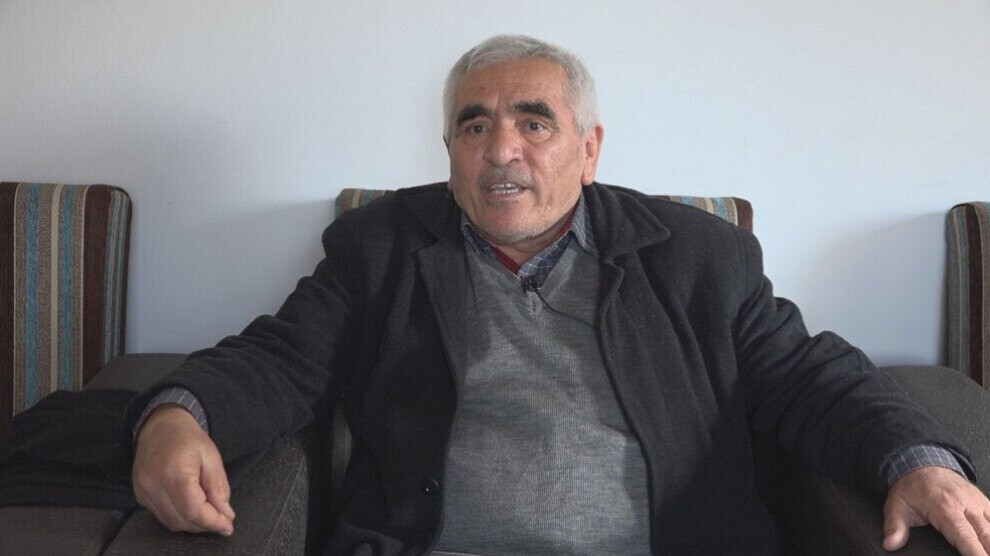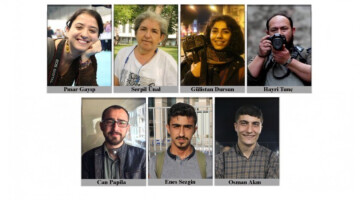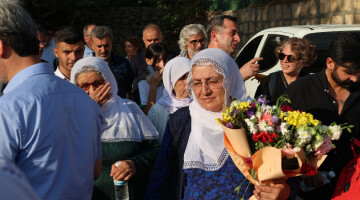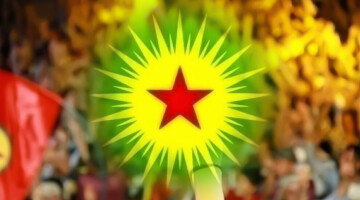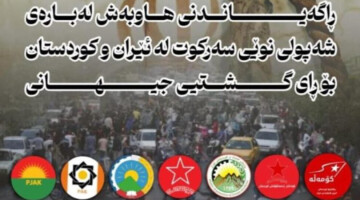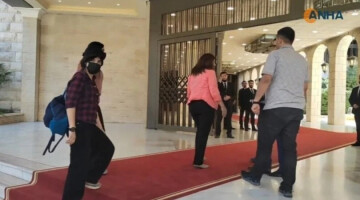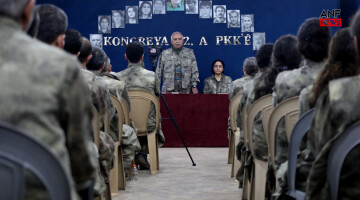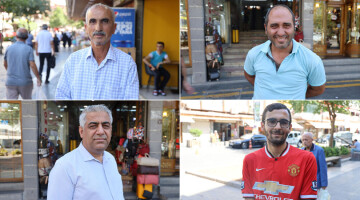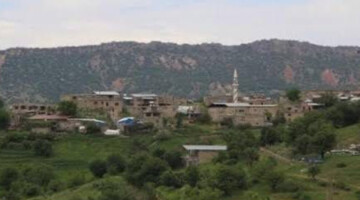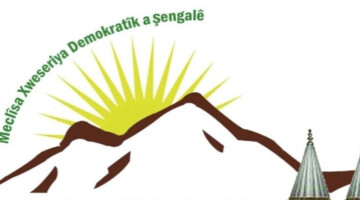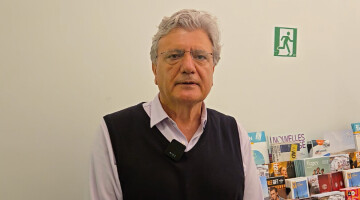Kamuran Hacı Muhammed has spent his life fighting for Kurdish emancipation and against the colonial regimes that divided Kurdistan. His father, uncle and himself were peshmerga fighters of the KDP between 1960 and 1970. One family member fell as a peshmerga in the 1961 uprising against the regime, when peshmerga led by Mistefa Barzani had launched an uprising and guerrilla war against the oppression of the Iraqi regime. But the KDP peshmergas are not the only members of Kamuran Hacı Muhammed's family; the PKK's first guerrilla fighters in Dêrik in Rojava also came from his family.
From the KDP to the PKK
In the Association of Martyrs’ Families in Dêrik, the story of his uncle Ahmet Huseyin Hacı is told. Ahmet Huseyin Haci had been a member of the KDP since 1957. In 1961, when the Kurdish uprising began under the leadership of Mistefa Barzani in southern Kurdistan, he worked with all his might for the uprising in Rojava. In 1975, he also opens his house to the KDP peshmerga. In 1985, he falls out with the KDP because he criticizes Masoud Barzani for his anti-PKK stance. People from Dêrik tell that Hacı and his family subsequently became intensely involved with the PKK. His son Zinar joined the PKK in 1986 and was martyred in action in 1989.
Support for the KDP-led uprising in 1961
His nephew Kamuran Abdulaziz Hacı Muhammed has a similar biography. Hacı Muhammed was born in 1957 in the village of Girê Sor near Dêrik on the border with southern Kurdistan. His father and uncle were KDP supporters and members of KDP-Syria at the time. During the 1961 uprising in southern Kurdistan, the entire family supported the KDP. Hacı Muhammed recounts this time: "When the party was founded here, my father was one of the first to join it. My father, Osman Sabri, was captured and imprisoned by the regime. When we were children, Girê Sor was like a peshmerga settlement. They would come to Girê Sor, prepare, and then carry out actions against Iraq at night. Iraqi radio stations mentioned this situation several times. For this reason, the Syrian state exerted great pressure on the people of Girê Sor. When an agreement was reached between Iraq and Barzani on March 11, 1970, I was in the seventh grade. I was in class. On March 6, 1975, when the Algiers Agreement was reached between Iran and Iraq, most people from southern Kurdistan had to flee. Many people came to Rojava. The people of Rojava housed the refugees from South Kurdistan in their homes. Many of them helped. The Syrian regime arrested several people and imprisoned them, 'You helped Iraqi refugees, KDP people'. My father was one of those arrested.”
Martyred as a peshmerga
In 1975, the family's relationship with the KDP suffered a severe setback. The Peshmerga laid down their arms after the Algiers Agreement and stopped fighting the Iraqi regime: "My father had written many poems about the Barzani revolution until 1975. When the KDP laid down their arms, my father was very sad. At that time, they said there were about 80,000 peshmergas. My father was crying. In a poem he said, 'When we heard the sound of cannonballs, our heads were upright. When the sounds of the revolution's cannons and guns died away, our heads lowered to the ground again'. That's how connected we were as a family to the struggle. My father was very angry when he was told that the peshmerga had crossed into our side of the border after the revolution ended. We sacrificed and lost people for the revolution in South Kurdistan. My uncle’s son Abdullah from our village was martyred as a peshmerga."
Today we declare our support for the PKK
The former KDP supporter describes the following phase: "Between 1981 and 1982, we began to get to know the PKK. We were still associated with the Barzanis at that time. The PKK members came to our house. They were always referred to as 'the students.' We loved them. My uncle Zinar's son and my brother Dr. Kendal met the friends at the University of Aleppo. They joined the PKK in 1986. They met Rêber Apo [Abdullah Öcalan]. They actually knew them before '86, but they didn't want to tell us because they knew we were still with KDP. They had met the friends at the university in Aleppo, and we gradually got to know the friends through their visits. We trusted them, believed them, and joined. Zinar fell at the border near Dêrik in 1989. My brother Dr. Kendal in 1991 in Garzan, my sister in 1991 in Çelê (Çukurca). We continue the way in their footsteps."
We have understood even our religion through PKK
Throughout Kurdistan, the prison resistance in Amed (Diyarbakır) left a deep impression. In particular, Mazlum Doğan's action reignited Kurdish resistance. On Newroz 1982, PKK cadre Doğan placed three matches on the table in his cell in Amed prison and took his own life. He left behind the message, "Giving up is treason, resistance leads to victory."
Commenting on the significance of the action and his approach to the PKK, Hacı Muhammed says, "After Mazlum Doğan's action in Amed Dungeon, we understood what defending a nation, what patriotism means. A new spirit developed. We learned a lot with the PKK revolution. We even understood our religion through the PKK. We learned about our humanity, our personality, through the PKK. So, what Kurdish identity means, how to live and resist. That's what we learned. I met Rêber Apo twice during the time he was in Syria. He used to say, 'Even if we destroyed ten outposts, if we conquered them, we could not liberate the country without destroying the outposts in the brains and liberating our mentality.' We, the people of Rojava, are very lucky; Rêber Apo worked here, we went and listened to him."
"We do not accept any force that supports the enemy"
Regarding the KDP’s current policy, Hacı Muhammed says: "We are very sad and angry. Turkish helicopters took off from southern Kurdistan and attacked Gare. It is normal for the enemy to do such things, but for the helicopters to take off from South Kurdistan with the support of the KDP and attack the PKK is a completely different thing. We hope the KDP will change its attitude. Your own media write that there are 31 Turkish bases in South Kurdistan. Has the government in South Kurdistan ever condemned the invasion of the Turkish state on their land? No. This is exactly our problem. The South Kurdistan region has fallen into this state because of this. We cannot accept this. We cannot applaud a force that helps the enemy against its own brothers and sisters."

